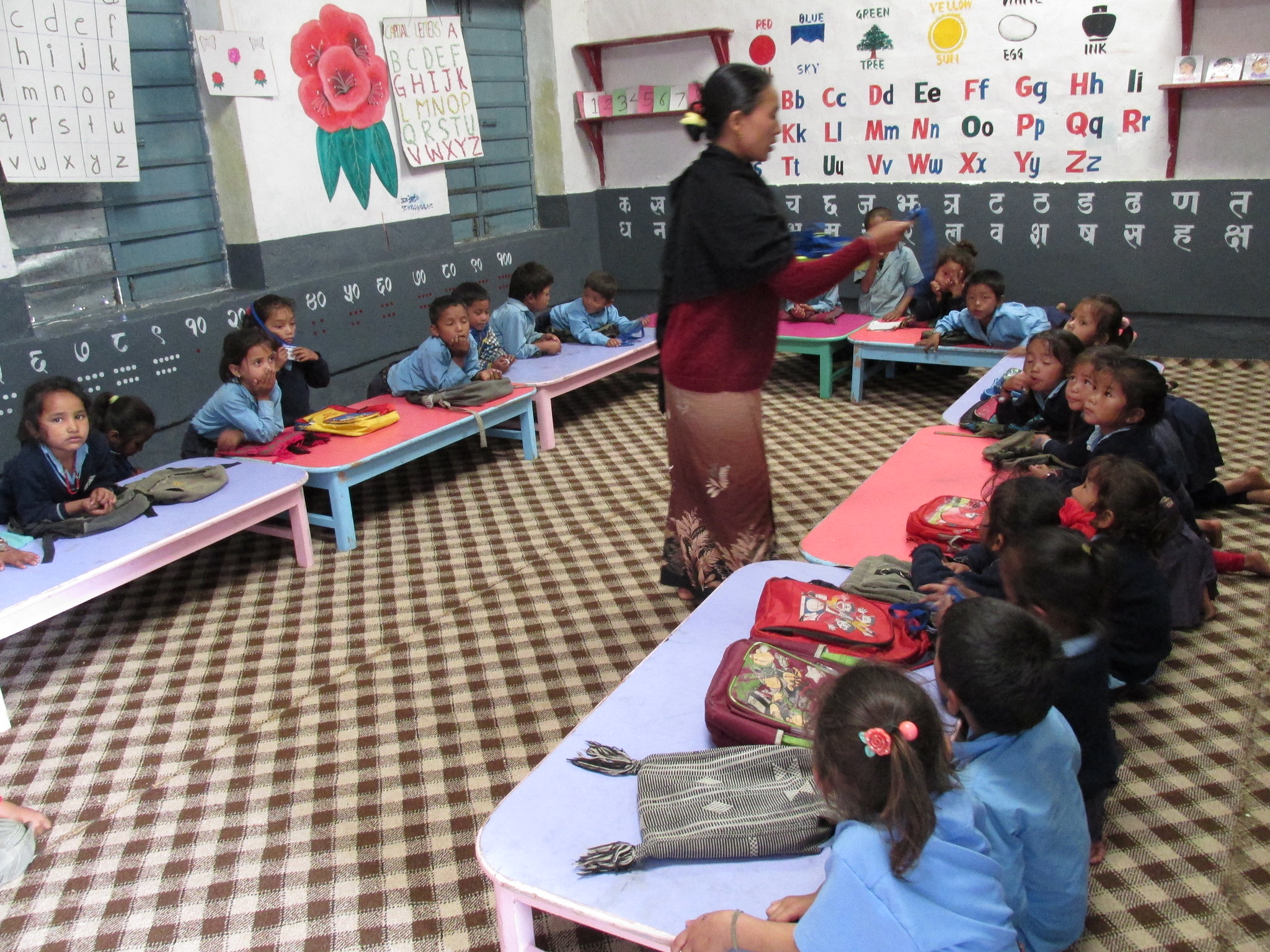How Empowering Teachers Reduces Poverty
 October 5th marked an important day for educational discussions worldwide. World Teachers Day, or WTD, focuses on empowering teachers in order to build sustainable societies within developing countries.
October 5th marked an important day for educational discussions worldwide. World Teachers Day, or WTD, focuses on empowering teachers in order to build sustainable societies within developing countries.
When it comes to poverty reduction, education is one of the key target areas. When a child is educated, he or she is more likely to obtain better skills and jobs to build up the community and make healthier decisions.
This education is not possible without teachers, though, and our world is currently at a shortage of qualified individuals to take up this position.
Teachers for EFA, or the International Task Force on Teachers For Education For All, has calculated that “25.8 million school teachers need to be recruited to provide every child with a primary education, which includes 3.2 million new posts and the replacement of 22.6 million teachers expected to leave the profession.”
The 2030 Sustainable Development Goals includes the target of ensuring inclusive and quality education for all and to promote lifelong learning. Part of this goal includes drastically increasing the number of quality educators in developing countries.
As things stand now, UIS projects that 33 countries will not have enough teachers to achieve the 2030 goal.
Of these 33 countries, sub-Saharan Africa will face the greatest challenges in meeting the educational goal.
The United Nations Educational, Scientific and Cultural Organization reported, “For every 100 children of age to start school today, there will be 142 in 2030. As a result, countries across the region will need to create 2.2 million new teaching positions by 2030 while filling about 3.9 million vacant positions.”
However, with these statistics stacked up against poverty’s favor, several countries have been formulating plans to empower teachers.
Throughout World Teachers Day, countries and organizations met and developed various plans of attack.
The Incheon Declaration during WEF 2015, for instance, stated its recognition of the critical role of empowering teachers. “At the forum 1,600 participants from 160 countries committed to “ensure that teachers and educators are empowered, adequately recruited, well-trained, professionally qualified, motivated and supported within well-resourced, efficient and effectively governed systems.”
One of these countries is Israel. MASHAV, Israel’s Agency for International Development Cooperation, has begun to address the challenge of finding, empowering and recruiting teachers by conducting pieces of training.
MASHAV conducts these pieces of training both in Israel and abroad in order to “present adaptable advanced pedagogical methods and new schooling techniques to enhance quality and flexible schooling.”
Other countries that have pledged to help empower teachers include France, Argentina, Brazil, South Africa, Russia, the U.K. and others. Each has produced its own plan of action that will bring in more qualified teachers to achieve a 12-year education for all.
With 58 million children out of school and populations continuing to rise, it is clear that more teachers will be required. These children are the future and the key to reducing global poverty.
But none of this is possible without the dedication, encouragement and direction of qualified teachers.
On the site for WTD, it shares this encouragement: “Everyone can help by celebrating the profession, by generating awareness about teacher issues, by ensuring that teacher respect is part of the natural order of things. Take the opportunity of the day to discuss, compare, learn, argue, share and improve.”
– Katherine Martin
Sources: Teachers for EFA, Mashav, UIS, UNESCO, World Teachers Day,
Photo: Flickr
